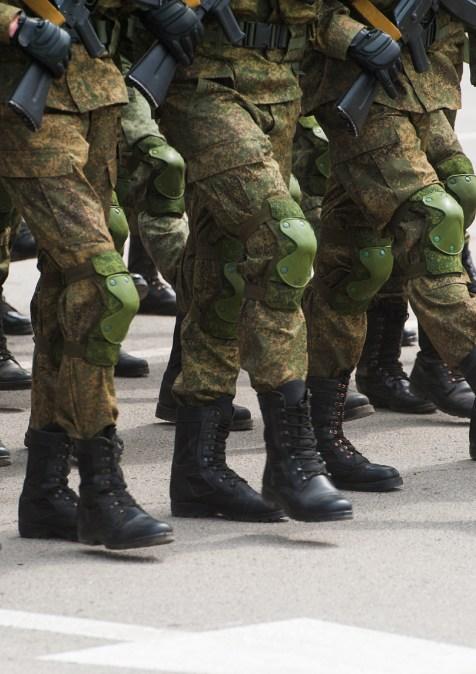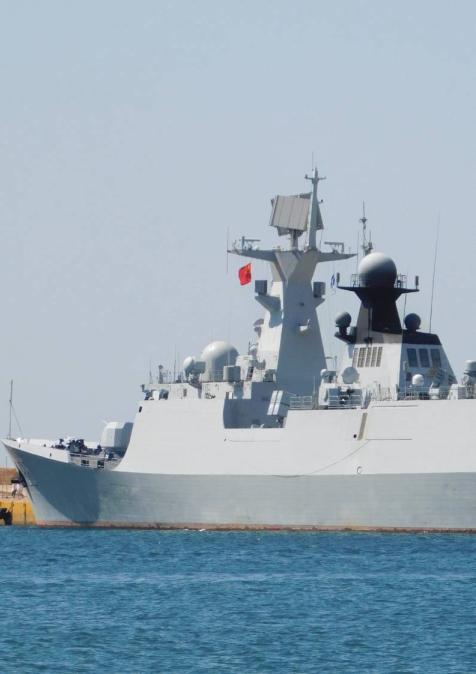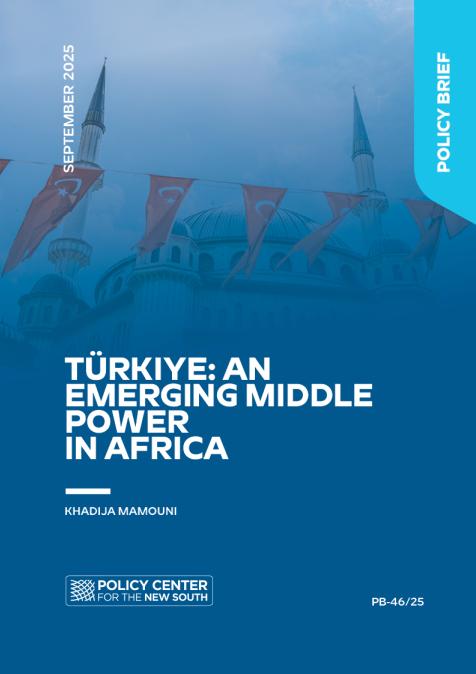Publications /
Opinion
Massive and sometimes violent protests have been setting the pace in Hong Kong for over 100 days. Demonstrators have put forward five demands, amongst which a democratic system of local rule, not controlled by Beijing. Below is an international press review of the Hong Kong political crisis by Helmut Sorge, former Foreign editor, and Middle East expert for Germany's leading newsmagazine "Der Spiegel", and columnist at the Policy Center for the New South.
Ta Kung Pao, a Hong Kong newspaper controlled by the Communist Party, published a photo of a woman standing in the lobby of a luxury hotel of the seven million people enclave on the southern coast of China, apparently in intensive conversation with some younger people. It was not any woman. Julie Eadeh. She is a political counselor of the US consulate in Hong Kong. She discussed the crisis with her contacts, activists of the pro democracy movement of the former British Colony, which these days and months are struggling, through its worst political crisis since having been transferred to Chinese control 22 years ago.
The headline of the paper revealed the truth, the truth seen from Beijing. “Foreign forces intervene, seek to stir a color revolution.” The newspaper described Mrs. Eadeh, a graduate in Arab studies of Washington’s Georgetown University, as a “mysterious and low profile expert on subversion”. Finally, it dawned on the Chinese readers that the hundreds of thousands of protesters, who for the last four months disrupted air traffic, blocked roads, stopping trains, are mercenaries of the United States of America, ready to cause turmoil to stop the long and constructive march of China towards grandeur and power.
There was more proof of the sinister conspiracy by the Americans, published in Ta Kung Pao and other papers-a Non Chinese man, who was identified as “a foreign commander” of the protest movement; the image showed the conspirator, who presumably provided rebels with information about police movements. Yes, that was him, sitting on the steps of a pedestrian walkway with his cell phone. Helas, for the eager investigative reporters, the man in question was not a spy reassigned from the cold war into hot Hong Kong, but Kevin Roche, an editor at the “New York Times” communicating with a” Times” reporter.
“THE DEPTH OF ANIMOSITY”
Other photos documenting evil intentions published in the communist Wen Wei Po, showed Julie Eadeh wearing a flak jacket and helmet, surrounded by military hardware. A U.S. training camp for Chinese traitors, hidden near the Happy Valley horse racing grounds on Hong Kong Island? No, the American who earlier worked in Bagdad, visiting the Iraqi city of Mosul years before she was reassigned to the former British colony. Nevertheless, for the “Global Times” in Beijing, also controlled by the PC, it was proof enough that the “so called diplomat “was involved in the Middle East planning subversive activities on the grounds of human rights and democracy”. It seems that the “Communist party leadership-and very likely Mr Xi himself “has been surprised by or oblivious to the depth of the animosity” (“New York Times”) in the semi autonomous enclave which has driven the silent and not so quiet majority into the streets, not only students, but lawyers marched and civil servants, teachers and aviation employees an indication of broad antigovernment sentiment. For many of the residents, who joined the protests, marching and inhaling tear gas, escaping the rough impact of water cannons and vicious hits with police batons, is a weekend activity, come Monday most of them are back to work.
Suddenly, it was not the one law, the Fugitive Offenders Ordinance, long withdrawn, but the struggle for the future of Hong Kong, a combat for its soul and identity. The younger generation apparently feels no longing for the motherland, refusing the authoritarian regimes attempt to impose, slowly, its power on the enclave, which was governed by the principle of “One country, two systems”. The extradition law allowing the transfer of criminal suspects to mainland China seemed for the city’s vigilant activists like an attempt to undermine the principles, which supposedly would safeguard the city’s semi autonomy until 2047. While it was the contested extradition bill, which set off the protests, “they are now sustained by broader grievances against the Chinese government and its efforts to impose greater control over the territory”, noted the “New York Times”. The protesters not only demand the pardon and release of more than 1000 arrested activists, accused of rioting and assaulting police officers, damaging property or inciting and participating in unauthorized assembly, the appointment of an independent commission to investigate police violence, and, a major challenge for Beijing, “universal suffrage”, free and direct elections in Hong Kong, which are tantamount to Beijing being asked to surrender Hong Kong to the west.
CONFRONTATION, VANDALISM, ARSON
Hong Kong activists Joshua Wong and Alex Chow declared on the opinion page of the “New York Times” (September 2) that they consider the leaderless resistance movement “as a critical front line battle against the authoritarian Chinese Communist party in Beijing.”At a visit in Berlin, activist Wong confirmed his illusionary battle plan: “First we liberate Hong Kong, and then China’s mainland.” Carrie Lam, the Beijing supported Hong Kong leader, noted a “worrisome pattern emerging,” with some organizers arranging large scale marches that inevitably end in violent confrontations, vandalism and arson.” In the article, she claimed that the police were tolerating peaceful protests in the city, from June to mid-September more than 80 percent of requests for marches and gatherings were permitted. The demand of protesters though that all charges being dropped against those arrested, won’ t be accepted, “because the rule of law is a bedrock of Hong Kong life, it can never be compromised.”
In other words, the confrontations will continue, the battle for the soul and control of the city may escalate. Beijing and its local representatives have failed to win the hearts and minds of a younger generation, which has no memories of colonialism or the long march of Mao, but cultivates its freedom of expression, the digital brotherhood with the world, which China’ s leaders control and repress. The youth of Hong Kong is not inextricably tied to mainland China or Taiwan anymore, but worried that in little more than a quarter of a century Hong Kong may lose its relative independence, freedom of speech, uncensored newspapers, uncontrolled internet access, relative free elections, its civil liberties. A June survey by the Hong Kong University Public Opinion Program found that 75 percent of people from 18 to 29 years old identify themselves as “Hongkonger” rather than “Chinese”, “Hongkonger in China”, or “Chinese in Hongkong”, a rather big rise from the 23 percent of this group who chose Hong Kong as their identity during the 2008 Olympics, and 45 percent in 1997.” New York Times reporter Andrew Higgins met a protester, who had a blunt, handwritten message pinned on his back: “Hong Kong is not China.”
Young Hongkongers want nothing to do with China, claims Liu Kin-Ming, a veteran Hong Kong journalist, who now works as a consultant, advising companies on political and business affairs in China. “They have no more interest in subverting China than they do in subverting Zimbabwe.” Hope has faded, observed writer Andrew Higgins, “despair has set in on China’s direction”. And with that pessimism, a “growing rejection of the country to which most people in Hong Kong are bound by ethnicity, but that many now shun as an alien power.” When London relinquished its control, there was hope that Hong Kong, its spirit of freedom, an opulent life style, adapted to democracy and all its privileges and negativism, would slowly loosen the powerful grip of party and military control of the mainland, and push all of China onto a path of democracy freedom, towards the world, not as enemy or brutal competitor, but as respected power.
“WHAT IS THE POINT?
Jin Zhong, longtime editor of “Kaifang”, a China focused magazine that has shut down its print version, said “hope and expectations about China had, despite its stunning economic success, curdled into bitter repudiation”. Hongkongers, insists Mr Jin, who now lives in New York, “have totally lost hope in China.” For decades, Hong Kong opposed “one party rule on the mainland, but nothing changed. All they got is one-man rule instead,” referring to the communist party leader Xi Jinping.” Everybody feels disappointment, why care about China, what is the point?” There is one, a major argument—the economic survival of the city. Hong Kong ‘s economy has grown increasingly dependent on money and trade with the mainland. Hong Kongs newspapers are filled each day with ever more slavish declarations of “love” for China by business people trying to protect their investments on the mainland. China wields tremendous economic power over Hong Kong-it accounts for half of the territories trade .China provides about a quarter of all foreign investment in Hong Kong directly, and probably much more when money that flows through tax havens is counted The mainland supplies more than a quarter of Hong Kong ‘s electricity and most of its drinking water. More than three quarters of their tourists come from the mainland. On the other hand, wrote Sui –Lee Wee and Raymond Zhong, “Hong Kong’s importance to China has dwindled, but Beijing needs it as financial hub. Most foreign investment into China flows through the territory. Mainland Chinese companies also raise money through Hong Kong, where global investors have put 2.6 trillion dollars into Chinese company stocks.”
“WE ARE DOOMED”
The contradiction seems obvious - the city’s political elite has become increasingly beholden to China, and its business leaders even more intertwined with the mainland, observed Andrew Higgins, “but many ordinary citizens have pulled away, having become less engaged.” China’s paramount leader Deng Xiaoping regarded the city as a greedy, self-indulgent place that had no real interest in politics and could easily be reabsorbed into the motherland. In the Hong Kong, recuperated from British control, Mr. Deng promised, “horses will still run, stocks will still sizzle and dancers will still dance.” That promise has largely been kept, so far, observed author Higgins, but it has come in tandem with a steady diminishment of the city as a place engaged in shaping China’s future.” As a city” confronting an empire, it seems an obvious expectation”, insists Eddie Chu, an elected member of Hong Kong’s legislature,” that we are doomed.”
Beijing’s propaganda experts have smeared the revolting citizens, a few hundred thousand, mind you, as a prelude to terrorism - a small and violent gang of protesters, unsupported by residents, provoked by foreign agents is running rampart, calling for Hong Kong’s independence and tearing China apart, just in these days when the nation is celebrating the 70th anniversary of the foundation of the Republic of China, parading its troops on Tuesday, October 1st, on famous Tiananmen Square. Xi jingping, dressed in classic grey Mao attire, declared in his speech that “no force can shake the status of this great nation”, which will be peacefully reunified under his guidance. The great leader for life promised to maintain the “long term prosperity and stability” of Hong Kong, the government committed to the political template which gives the city its limited autonomy,” one country, two systems”.
WILLING TO ROCK THE BOAT
While red flags were floating above Beijing, hypersonic drones and intercontinental ballistic missiles paraded, celebrating its past, projecting the future, in Hong Kong shots were fired and escalating violence overshadowed the choreographed show of force and joy in the capital. How much more protests will Beijing tolerate, how much more uncontrolled violence before taken action? Hong Kong ‘s Chief executive Carrie Lam was celebrating in Beijing while her city once again was facing mayhem. The embattled Hong Kong leader was one of the very few senior women watching the parade from the VIP platform, an honor indeed, and for how long? Hongkongers, speculates reporter Russell Goldman may be “willing to rock the boat, but for now they are unwilling to capsize it. Beijing also seems unwilling to push the envelope too far, advancing a policy of stalemate, rather than risk a bloody crackdown.”
Beijing apparently doubled troops stationed in and around the city to an estimated 12 OOO soldiers. The recent deployment of “People’s Armed Police” in Shenzhen, a city across the border, was broadcast on national TV and CNN, and no secrets were made out of the training of street combat in the Shenzhen Bay Sports Center. And besides rattling the sabers trying to intimidate the activists of civil disobedience, Beijing opted for digital war, a fake news campaign, a sprawling Russian style disinformation offensive from the mainland- more than 200 000 twitter accounts were ordered into battle for the minds. And for the first time, the “New York Times” reported (September 20) an American technology giant, Twitter, has attributed such a campaign to the Chinese government.
Twitter took down nearly 1000 accounts last month that it said were part of a state directed effort to undermine the mass protests in Hong Kong. It also suspended 200 000 other accounts that were connected to the Chinese operation, but not yet very active. Facebook and Youtube followed, all three platforms are blocked in mainland China, and not yet in Hong Kong. A military solution, in the midst of a devastating trade war between Beijing and Washington, a growing anti-Beijing movement in Taiwan, and a destabilized President in the White House? “The military solution would have many urgent and disruptive effects,” warns Wu Quiang, a political analyst in Beijing,”it would be political suicide for the Communist Party of China and the “one country, two systems arrangement of Hong Kong.”
Another escalation is to fear—the Hong Kong administration plans to bypass the city’s legislature in order to implement colonial era emergency laws, last implemented almost half a century ago—including a ban on face masks and curfews. On line censorship is possible, uniting with the mainland to control the internet.
The opinions expressed in this blog post are the views of the author.









